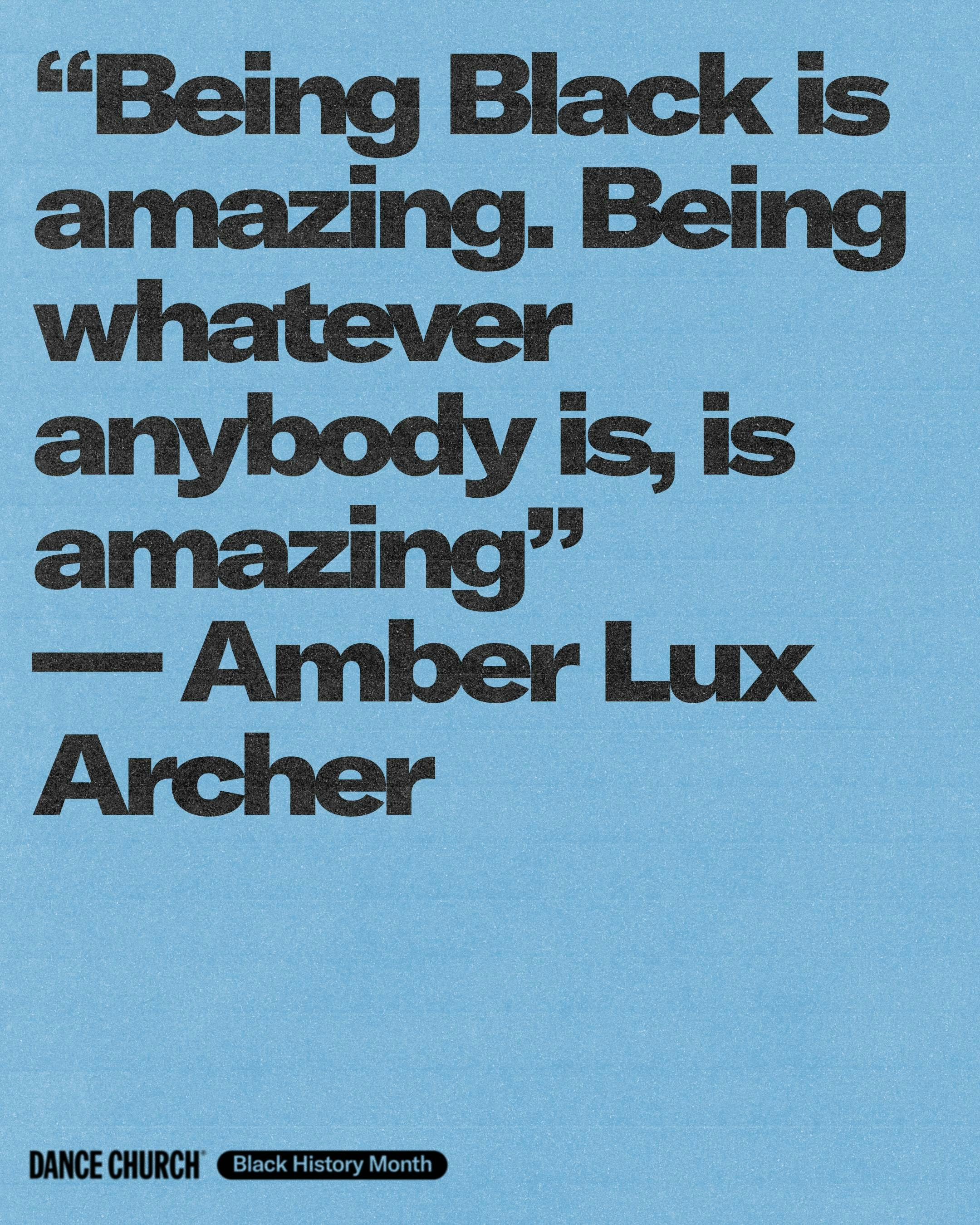BHM: Symone sits down with Vyette & Amber

Each Dance Church teacher is a working dance artist, performing and teaching any number of physical and artistic practices alongside the classes you know and love. When we aren’t on the dance floor with you, we inhabit cities as unique as we are. Symone Sanz, Dance Church teacher in Seattle, reached out to Vyette Tiya in Philadelphia and Amber Lux Archer in Atlanta to discover their experiences as Black dancers across the country.
Written by Symone Sanz
After earning degrees at American University and Princeton, Vyette relocated to Philadelphia three years ago. She teaches pop-up classes and co-runs a class series called Philly Dance Share. She began teaching Dance Church recently, with four stellar classes under her belt, and it has become her most consistent teaching practice. “It's also given me confidence as a teacher [to] guide any room, not only in a dance environment,” Vyette says.
Vyette brings music from her African, street, and contemporary dance training into her classes. “I've been throwing in a lot of Afro beats, Caribbean and broadly world music, along with hit songs from middle school.” In Seattle, I’ve found that music is my favorite opportunity to connect with class takers. Countless post-class conversations have been sparked by someone asking me for the name of a song on their way out. I’ve invited musicians to my classes and surprised them by including their newest release in my playlist. Introducing Dance Church to new people and new songs to longtime class takers has built and strengthened those connections.

Vyette also draws inspiration for the music and movement she shares in her DC classes from her work with Philadelphia-based, Afro-Panamanian choreographer Keila Cordova. The dance-theatre piece Vyette is rehearsing centers the lineage and identity of African descendants in Panama, but it also serves as an avenue for Vyette to interpret her own concepts of belonging, home, ancestry, and identity as a Kenyan-American artist. Philadelphia has welcomed the reflections that have emerged from her self-exploration. “There's a really strong artistic and creative scene and community here. This is a place where you can show up and make something happen,” Vyette says of her decision to move after graduating.
The opportunity to create and choreograph also inspired me to move to Seattle, and the dance community here immediately drew me in. This same sense of community enticed Amber to return to her hometown Atlanta after some years on the West Coast.
Amber was born and raised in Atlanta, Georgia where she was surrounded by a diverse community for most of her childhood. “I was told that what I had to say and think was important. I saw all these other strong Black women, Black men, as teachers, as leaders in the community,” Amber recalls. Immediately after high school, Amber performed for several ballet companies before entering a chapter of freelancing, expanding her performance repertoire to contemporary dance, musical theatre, plays, and film. Then, she spent time working in Portland, Oregon, Los Angeles, and Joshua Tree, California. While she faced microaggressions, gaslighting, and sexualization in the dance industry out west, her decision to move back to Atlanta was driven primarily by the community, culture, and family that awaited her—things she found lacking in the desert. Ultimately, Atlanta offered the support, safety, and opportunities she craved.

“In Atlanta, I am constantly dancing with people who look like me. It is a more diverse room with people of all different backgrounds,” she notes. While Seattle’s population is less diverse than Atlanta’s, I cherish the moments when I am surrounded by dancers of color. The experiences I’ve had performing in predominantly non-white dance companies and freelance projects—including PRICEarts and The Seattle Project—have allowed me to embrace my full identity without the pressure of compromising any part of myself to belong.

The diversity Amber experiences extends beyond the people she dances with to the variety of genres she practices including jazz, hip-hop, heels, musical theatre, and acting. Over the last ten years, Atlanta has become known as the “Hollywood of the East Coast,” and Amber is excited to develop her acting career into one of consistent performance on film and stage. “I'm capitalizing on all the experiences and lessons I've learned. I want to do Broadway. Moulin Rouge would be fun.”
In both of their cities, Amber and Vyette feel proud of their Blackness and value the space to embrace and explore this part of their identities. Dance Church is one of these spaces where support and care are exchanged just as freely as dance moves. It is a place where, as Amber puts it, “Being Black is amazing. Being whatever anybody is, is amazing.”